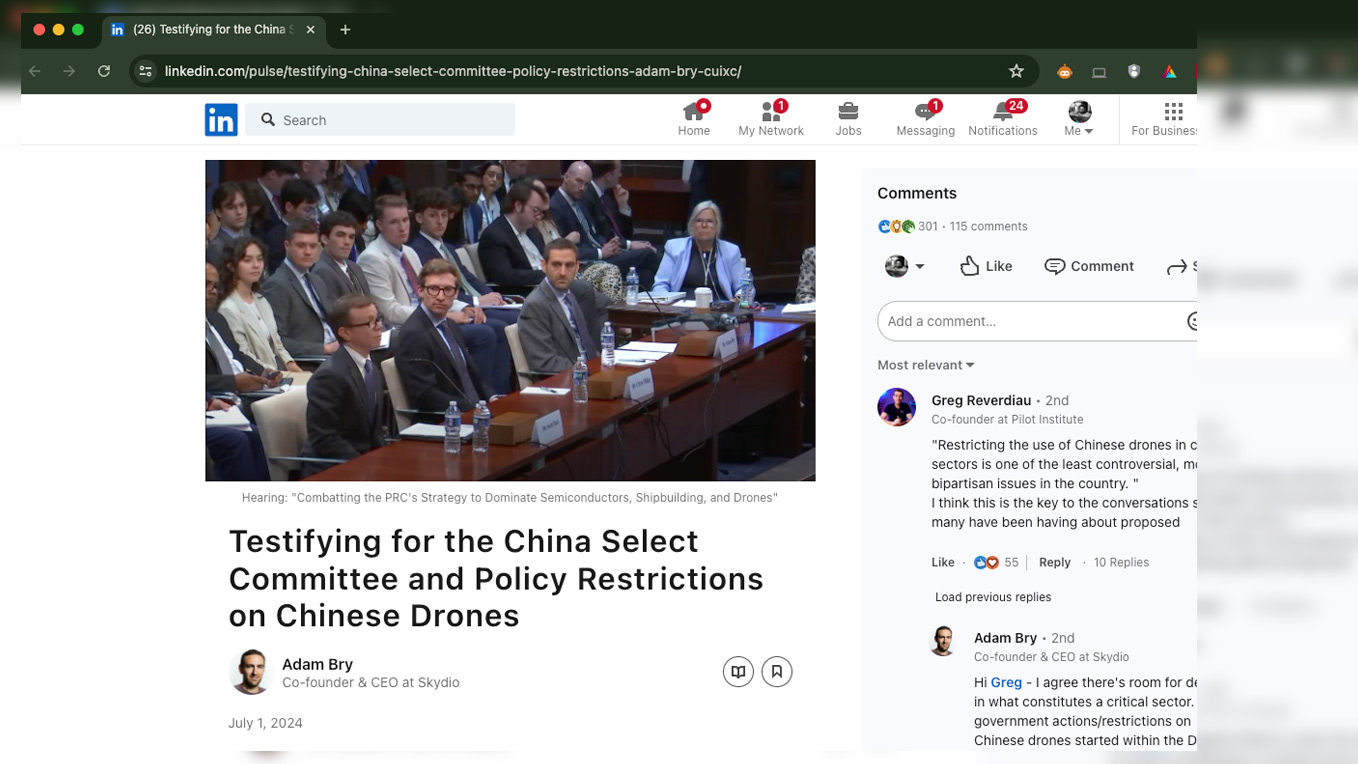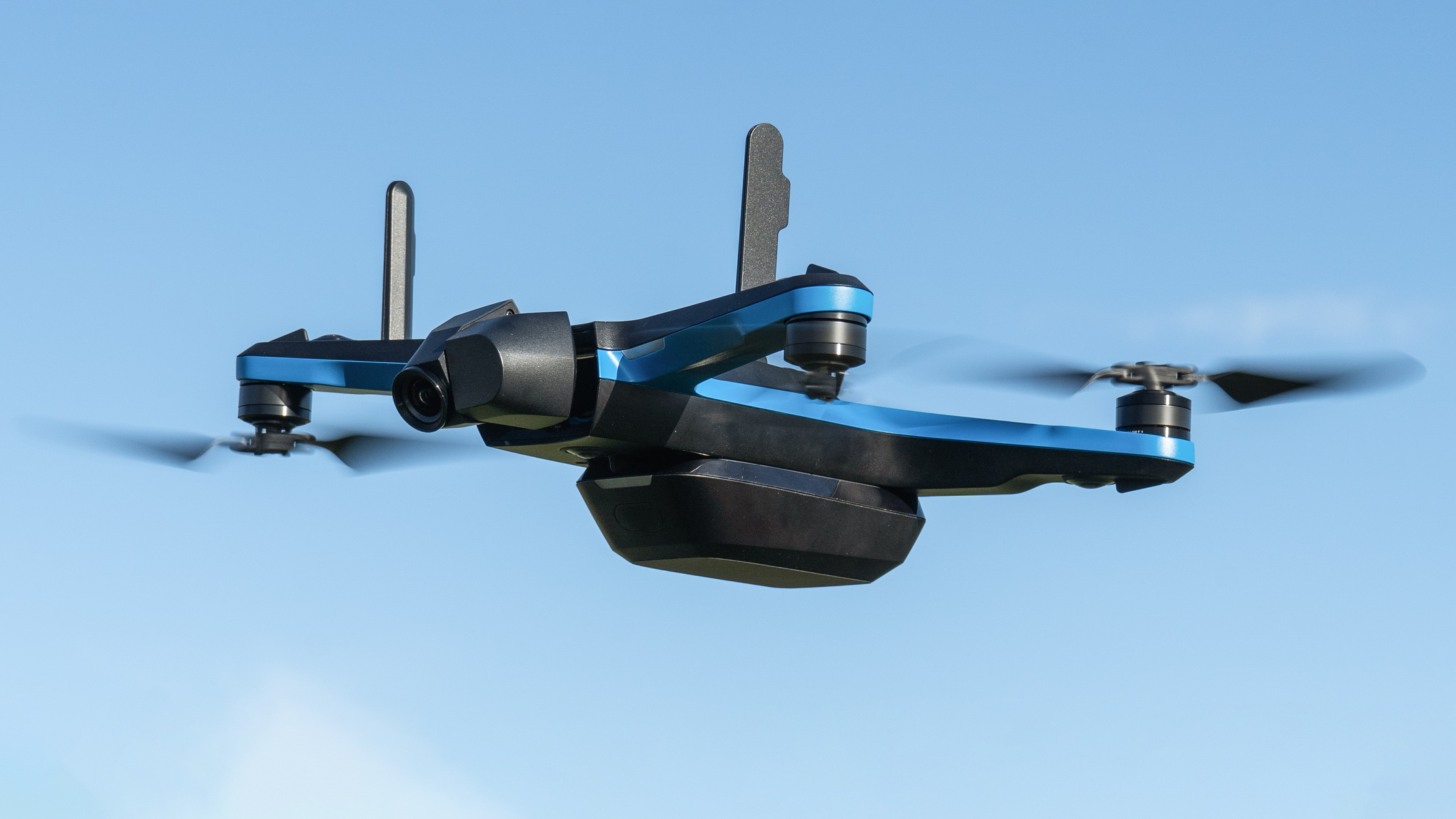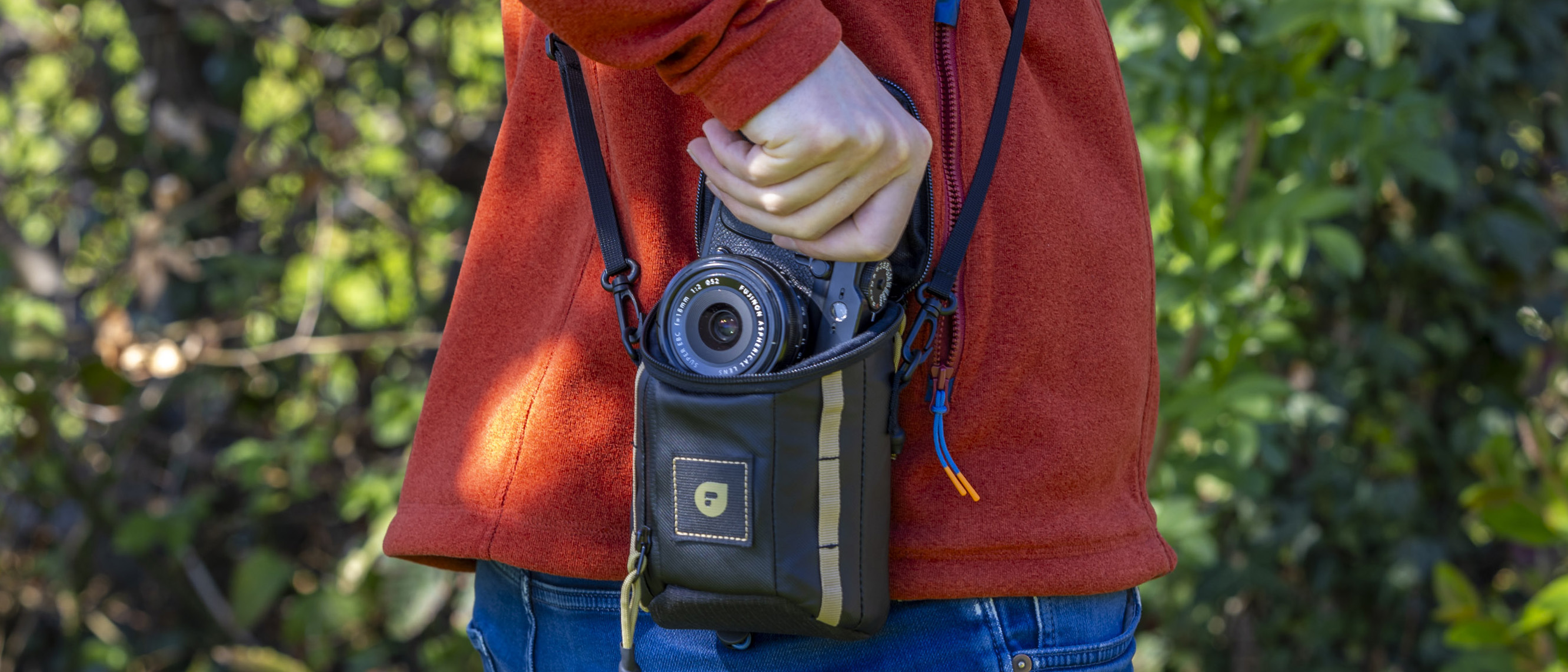Skydio CEO denies lobbying the US government to ban DJI drones
Skydio has a massive lobbying spend, and DJI are under threat – a lot of users have put two and two together

DJI is the largest manufacturer of consumer drones, and by far and away the best in the market if our best camera drones guide is anything to go by (and it is). Despite – or, more likely because – of that success, it is currently subject to restrictions and facing a ban by the US government.
Understandably a lot of DJI users – and indeed impartial observers – have looked at the potential advantages to US drone companies of a ban on DJI and other Chinese companies. It has not escaped their attention that Skydio, a relatively high-profile brand, has a rapidly-increasing lobbying budget, spending around $500,000 on lobbying last year.

After Adam Bray testified at Congress's China Select Committee hearing "Chips, Ships & Drones," a defence-bias meeting with a lot said on national security.
This, of course, has been the problem for the camera drone world. Skydio has already abandoned the consumer market after the Skydio 2+ in part because, despite great AI, it couldn't really compete with DJI. But the company has been keen to sell to government and government-adjacent roles like police departments.
Unusually, Skydio, CEO Adam Bray has gone on the record to note the issue and respond, though the answer might not do much to assuage DJI owner's fears.
In his LinkedIn statement, Bray says "As the leading US company, a few folks have aimed a pretty extreme level of hate at Skydio, claiming that we are “responsible for restrictions on Chinese drones because we’re focusing all of our energy on trying to lobby our competitors out of the market.” I’m writing to address this head-on."
"Are increasing restrictions on Chinese drones really just protectionist measures based on lobbying by the US drone industry? No.
Get the Digital Camera World Newsletter
The best camera deals, reviews, product advice, and unmissable photography news, direct to your inbox!
BUT
"Do we believe that relying on these drones for applications like national defense, critical infrastructure inspection, and public safety is generally a bad idea? Yes. Do we advocate for having a strong US drone industry? Absolutely. And does this sometimes involve conversations with policymakers about the risks of Chinese drones? Yes."
He goes on to claim that Skydio didn't lobby for the Countering CCP Drones Act - again, but is able to say it "was approved 21-0 in subcommittee and 43-0 in full committee. The Department of Defense, the FBI, and the Department of Homeland Security have all declared Chinese drones a national security risk."
He also seems to subtly accuse DJI itself – rather than fans – of seeking to escalate around this point, which is not something we've heard in any of our communications with DJI:
"I am not surprised or bothered that DJI’s talking points on the issue focus on Skydio. They are desperately trying to misdirect. I’m also not surprised that their network of resellers and other folks with an economic dependence on DJI repeat these talking points. The only thing that bums me out is to see a few folks within the communities of drone users we serve attack Skydio - especially public safety - for whom we have so much respect, and are so motivated to support."
Sadly he rounds off by failing to address the thought of Skydio selling to the consumer market again.

With over 20 years of expertise as a tech journalist, Adam brings a wealth of knowledge across a vast number of product categories, including timelapse cameras, home security cameras, NVR cameras, photography books, webcams, 3D printers and 3D scanners, borescopes, radar detectors… and, above all, drones.
Adam is our resident expert on all aspects of camera drones and drone photography, from buying guides on the best choices for aerial photographers of all ability levels to the latest rules and regulations on piloting drones.
He is the author of a number of books including The Complete Guide to Drones, The Smart Smart Home Handbook, 101 Tips for DSLR Video and The Drone Pilot's Handbook.
